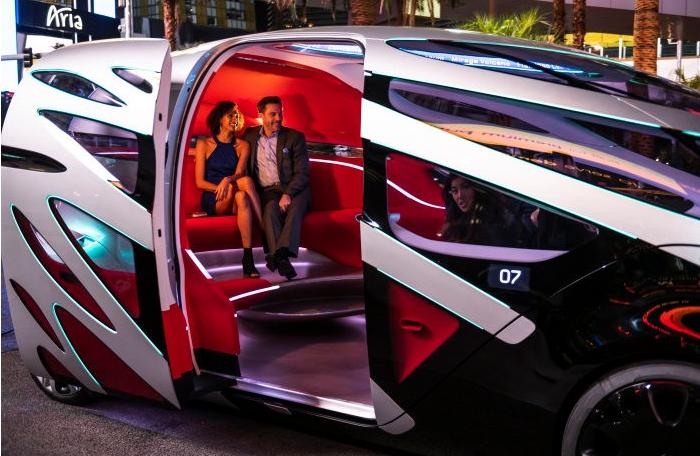
Mercedes Benz Vans presents its ‘Vision Urbanetic’
At the Consumer Electronics Show (CES) in Las Vegas, Mercedes-Benz Vans presented its Vision Urbanetic, a study that opens up new perspectives on autonomous driving.
It is said to enable the needs-based, sustainable and efficient transport of people and goods – and meet the needs of cities, companies from a wide range of industries, as well as travellers and commuters in innovative ways.
The concept reduces traffic flows, relieves inner-city infrastructures and contributes to a new urban quality of life. At the same time, it offers an outlook on future-oriented technologies for the interaction between human and machine.
The concept is based on an autonomously driven, electrically powered chassis, which can carry structures for passenger transport or goods transport.
As a fully networked vehicle, Vision Urbanetic is part of an ecosystem in which commercial and private mobility wishes are transmitted digitally.
Vision Urbanetic collates these needs and fulfils them with a highly flexible fleet, facilitating a considerable improvement in the use of resources, says the company.
Mercedes-Benz is working on solutions that focus on people’s freedom, decision-making authority and individuality. The goal is to create a balance between people and technology.
Using various camera and sensor systems, the vehicle fully perceives its surroundings in their entirety and communicates actively with it. Pedestrians who cross the street in front of it are informed by the large-format display in the front of the vehicle through special animations that they have been perceived.
A similar function is fulfilled by the digital shadowing that makes the side door area an active display. Several hundred light units signal the approaching persons that they have been recognised.
Their contours are shown schematically on the outer shell. Pedestrians or cyclists can assess upcoming actions of the vehicle quickly and reliably.
The concept integrates an IT infrastructure that analyses supply and demand in real time. The result is an autonomous fleet whose routes are planned flexibly and efficiently on the basis of the current transport needs.
Thanks to full networking, evaluation of local information and intelligent control, the system can not only analyse current requirements, but also learn from them. It is thus able to anticipate and respond to future needs.
This process can be optimised, shortening waiting times in local passenger traffic or congestion can be avoided. For example, the entire system recognises a larger group of people in a specific area via data recording in the Vehicle Control Centre. It can send vehicles there to serve the increased demand quickly and efficiently.
Mercedes-Benz Vans is pursuing an ambitious target with its Vision Urbanetic. It envisages transporting more people and goods with fewer vehicles on a virtually unchanged roads infrastructure in order to relieve inner cities and, at the same time, fulfil continually growing mobility requirements and customer desires.
This would ultimately facilitate an improved quality of urban life – with flexible and comfortable movement of people, efficient and sustainable transportation of goods, significantly lower noise and pollutant emissions and greater freedom in city planning.
Vision Urbanetic’s electric drive delivers zero-local-emissions mobility, thus making it the perfect vehicle for city centres and areas subject to legal access restrictions. The virtually noiseless electric drive also presents new options for late or night-time deliveries and thus offers major economic potential.
